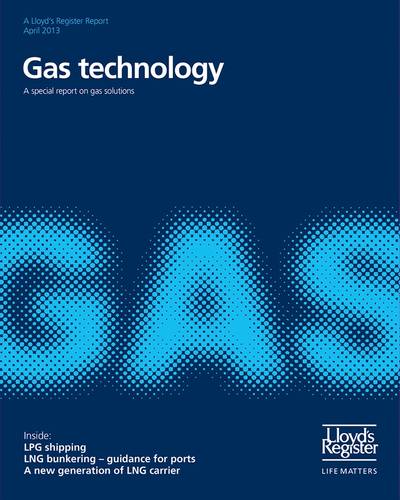Gas Technology Report issued by Lloyd’s Register
Adoption of, and interest in, LNG-as-fuel for ships is gathering pace but challenge is as much in safe bunkering and port operations as in ship design. LNG bunkering guidance is one of the key subjects addressed in LR’s latest Gas Technology Report.
The growth in gas production is important for shipping and LR’s gas technology insight in to the issues being faced today is more relevant than ever.
"It has been a big year so far for gas in shipping," comments Luis Benito, LR’s Global Marine Marketing Manager. "We are seeing robust demand for LNG carriers; the world’s biggest LNG fuelled passenger ship, the LR classed Viking Grace is now in operation in the Baltic Sea carrying 2,800 passengers; we have a growing number of gas-as-fuel projects underway or maturing; and late last month Shell took delivery of a brand new inland waterway tanker. Our marine stakeholders are looking to understand how to manage the risks involved with gas. We have the experience and the expertise to help them make informed decisions whether they are looking for off-the-shelf solutions or first principles."
As the Viking Grace operations show, the port operations are as important as those on-board ship. LR’s LNG bunkering guidance can help ports worldwide address the risks involved.
"This is a critical area," says Benito. "When you have large centres of population and passenger and freight operations underway, all stakeholders need to get themselves in a position where they can make commercial decisions on the basis that they have addressed the risks involved. Having been involved with LNG in marine operations from the very beginning, we are well positioned to advise all in the marine supply chain – whether you are looking to transport LNG or LPG, use gas as a marine fuel or examining safe bunkering and port operations – we can help."
The report also looks at the potential for methanol as a marine fuel – and methanol can be manufactured from LNG. As Benito concludes, "Gas has a big future, but there are more options than just LNG. Methanol and other alternatives that can be developed from natural gas today, and from bio-sources at some point in the future, are also worth looking at."







